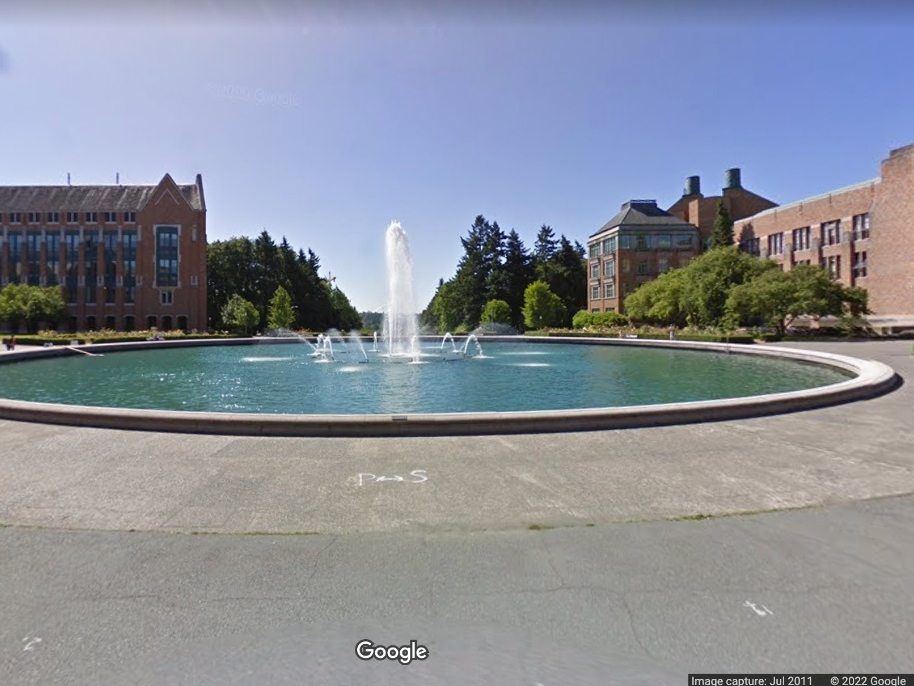Schools
Professor Sues University Of Washington, Alleges Free Speech Violation
A professor is suing the University Of Washington, alleging a free-speech violation in a dispute over an indigenous "land acknowledgment."

SEATTLE — A professor has filed a federal lawsuit accusing the University of Washington of violating his free speech rights as he faces possible discipline in a dispute over including a Native American “land acknowledgment” on his syllabus.
Stuart Reges filed the lawsuit Wednesday in the U.S. District Court for the Western District of Washington. The lawsuit names Ana Mari Cauce, president of the university, as well as the director and vice director of the university's Computer Science and Engineering school, and the dean of its College and Engineering.
Reges, who has taught at the university since 2004, said the university encouraged professors to include a "political statement" on their course syllabi, then disciplined and investigated him for expressing a dissenting view.
Find out what's happening in Seattlewith free, real-time updates from Patch.
In September 2020, university administrators encouraged professors to include a statement on their syllabi recognizing that the university's land was once owned by indigenous people.
Leaders recommended including the following language: “The University of Washington acknowledges the Coast Salish peoples of this land, the land which touches the shared waters of all tribes and bands within the Suquamish, Tulalip and Muckleshoot nations.”
Find out what's happening in Seattlewith free, real-time updates from Patch.
In the lawsuit, obtained by Seattle Patch, Reges said he disagreed with the university’s "Indigenous Land Acknowledgment Statement," likening it to virtue signaling, the lawsuit said.
Instead, he included a dissenting statement on his syllabus, writing in his land acknowledgment that indigenous tribes "can claim historical ownership of almost none of the land" on which the university sits. In the lawsuit, Reges said his beliefs are based on philosopher John Locke’s labor theory of property, in which ownership is derived from improving the land.
The university called his statement a "disruption to instruction," the lawsuit said. It created a "shadow" class section his computer programming course, which was taught by a different professor, on tape, and invited students to switch. It also opened a disciplinary investigation and assembling a committee to weigh how to further punish Reges, the lawsuit said. A possible punishment could include firing.
"The specter of termination has had a chilling effect on his speech as a public university faculty member," the lawsuit said.
Reges maintains that it's "settled law" that public university faculty have a "First Amendment right to speak on matters of public concern in their teaching and research because academic freedom is “a special concern of the First Amendment."
"The value and utility of land acknowledgement statements exemplifies such a matter of public debate," the lawsuit said. "Defendants asked their faculty to wade into this controversy by including a land acknowledgment statement in their syllabi, then unconstitutionally discriminated against Professor Reges for swimming against the current and offering a dissenting viewpoint. They did so by retaliating against him through the creation of a 'shadow' class section and subjecting him to a disciplinary investigation under vague and overbroad university policies."
The university said it is aware of the complaint and denied it violated Reges' rights.
"The university continues to assert that it hasn’t violated Stuart Reges’ First Amendment rights and we look forward to presenting our position if called to do so," a spokesperson for the university told Patch in a statement Thursday.
Reges told Fox News Digital it's a "very simple First Amendment case."
The university encouraged professors to include land acknowledgments on their syllabi, but they "suggested a progressive version of it," he said.
"I included a more conservative version of it, and they freaked out,” Reges said.
He added:
“It was clear that they wanted a particular kind of land acknowledgment. There was a particular view of American history that they wanted you to affirm, you know, that the United States is evil and that we stole land from native tribes and so forth,” Reges said. “So I took them up on the suggestion to include one, and I included one that I knew they wouldn’t like because it didn’t match that view of history. And they really went crazy.”
Get more local news delivered straight to your inbox. Sign up for free Patch newsletters and alerts.